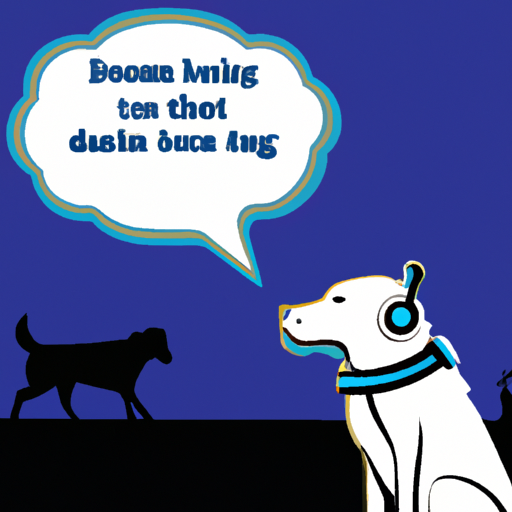Understanding Why Your Dog Barks
Dogs, like us, have their own unique means of communication. Barking is an essential part of their language, analogous to how we use words to express our feelings and intentions. However, excessive barking, especially at other dogs, can be a sign of underlying issues. It could be due to:
- Territorial Behavior: Dogs are naturally protective of their territory and may bark at other dogs as a warning.
- Fear or Anxiety: Dogs might bark at other dogs out of fear or anxiety, especially if they’ve had negative experiences in the past.
- Excitement: Sometimes, dogs bark simply because they’re excited and want to play with the other dog.
Understanding the cause of your dog’s barking is the first step towards finding a solution.
Training Your Dog to Stop Barking
Training your dog not to bark at other dogs requires patience and consistency. It’s essential to remain calm and composed throughout the process. Here’s a step-by-step guide to help you:
- Identify the Trigger: Observe what causes your dog to bark. Is it another dog walking past your house? Or perhaps it’s when they’re in a crowded park?
- Redirect Their Attention: Once you’ve identified the trigger, try to redirect your dog’s attention. This could be done with a toy, treat, or a simple command.
- Reward Good Behavior: When your dog stops barking and focuses on you, reward them with a treat or praise.
- Consistency is Key: Consistency is key in training. Always respond the same way to their barking to avoid confusing your dog.
Using Positive Reinforcement
Using positive reinforcement is an effective way to train your dog. This means rewarding them for good behavior, rather than punishing them for bad behavior. This method encourages your dog to repeat the behavior you want. Here’s how you can apply this in training:
- Treats: Use your dog’s favorite treats as a reward when they stop barking.
- Verbal Praise: Compliment your dog when they behave correctly. A simple “good boy” or “good girl” can go a long way.
- Physical Affection: Dogs love physical affection. A gentle pet or a belly rub can serve as a reward for good behavior.
Seeking Professional Help
If your dog’s barking persists despite your best efforts, it may be time to seek professional help. A professional dog trainer or a behaviorist can provide you with tools and techniques tailored to your dog’s specific needs. They can also help identify any underlying issues that may be causing the barking.
FAQ
1. How long does it take to train a dog to stop barking?
- Training duration varies from dog to dog. Some may respond quickly, while others may require more time.
2. Can I use a bark collar to stop my dog from barking?
- Bark collars can be effective, but they should be used as a last resort. They can cause stress and anxiety in dogs, and it’s always better to try training methods first.
3. Is it normal for dogs to bark at other dogs?
- Yes, it’s normal for dogs to bark at other dogs as a way of communication, but excessive barking can be a problem.
4. What should I do if my dog’s barking is causing problems with my neighbors?
- Try to keep your dog indoors when your neighbors are outside or try using noise-cancelling devices. Communicate with your neighbors, let them know you’re working on the issue, and apologize for any inconvenience.
With patience, consistency, and understanding, you can train your dog to stop barking excessively at other dogs. Remember, every dog is unique, so what works for one may not work for another. It’s all about finding what works best for you and your furry friend.



